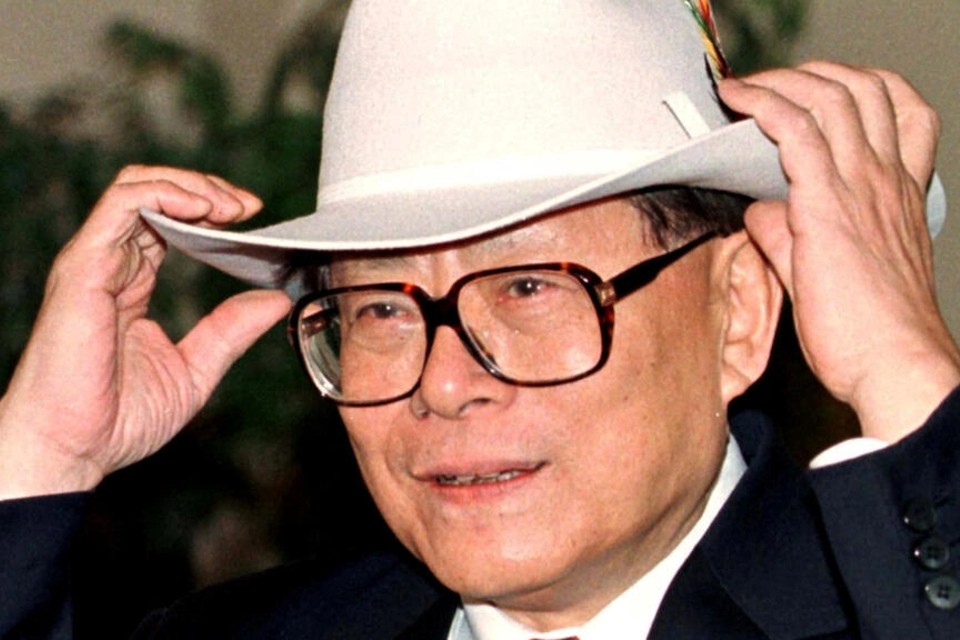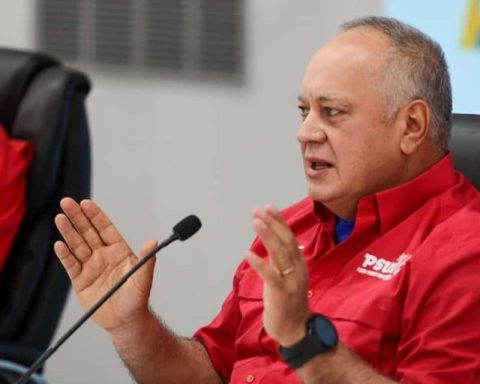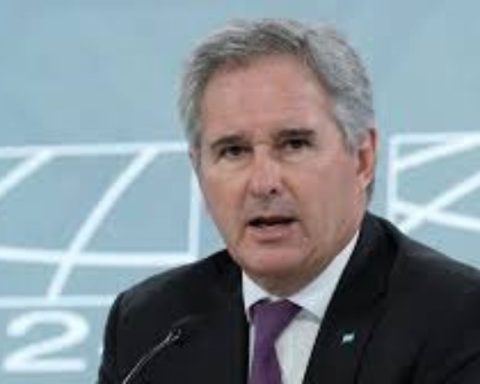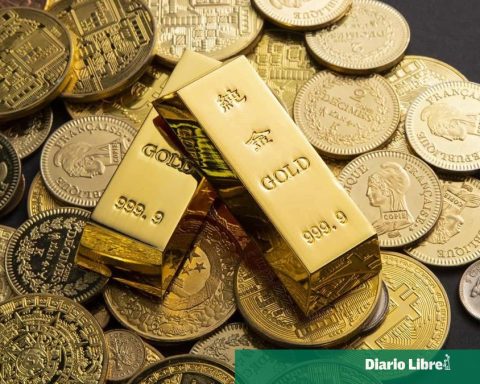Former Chinese leader Jiang Zemin passed away on Wednesday November 30 in Shanghai at the age of 96, the Chinese State News Agency announced. He was not the best known of the great political leaders of contemporary China, but the changes he accompanied in his country gave a historical dimension to his decisions. He was the first to embody the current face of the People’s Republic of China: that of a leading superpower.
Text: Igor Gauquelin / RFI
When his time came, commentators spoke of him as a Chinese Communist Party “apparatchik” that few would have bet on. Jiang Zemin broke in late, in his fifties, and his slow rise may have prevented him from embodying a new generation of leadership. But the events of the story ultimately decided otherwise.
In the early 1980s, the future number one in the PRC, interested in the economy, was vice-chairman of the Party’s foreign investment commission, a key issue. He then became vice minister and then minister of Electronics Industry, another key issue, before assuming the mayoralty of Shanghai in 1985. This was a turning point; two years later, in 1987, he joined the Political Bureau of the Chinese Communist Party (CCP) Central Committee.
Jiang Zemin was finally thrust into the heart of the machinery. With almost no transition, two years later, in 1989, he became General Secretary of the Chinese Communist Party in June, and then Chairman of the CPC Central Military Commission in November. He maintained this dual function until the year 2000, and he was also President of the Republic since 1993. From then on, he held “the three crowns.”
This concentration of power in the hands of a single man, which occurs again today with Xi Jinping, was the first time since Mao Zedong. So how could this happen? How is it that this drab engineer without much charisma suddenly became the face of a China that was increasingly conquering globalization, and that subsequently received immense influence in the arcana of Beijing under the presidencies of Hu Jintao and Xi Jinping almost until his death?
*Read also: China censors information on wave of protests against covid-19 lockdowns
The story of an unexpected rise
Where did Jiang Zemin get his legitimacy from? tiananmen. It was the tragic massacre of a crowd of pro-democratic students on June 4, 1989 in front of the Forbidden City, in the capital’s most famous square, that disqualified all political rivals of this son from the coastal province of Jiangsu. These events cleared the way for him, making him the consensus that would save the regime at this time of turmoil at the pinnacle of power.
In 1989, at the time of the crackdown, China was still in the hands of an old man, Deng Xiaoping, weakened since 1986 by the fall of his first dolphin, Hu Yaobang, who died in 1989, sparking the movement. Deng is a national monument: as Mao’s successor, he reoriented the regime toward economic reform, giving the country a hybrid face between communism and capitalism. In the gloom, around the “little helmsman,” one of the CCP’s rising figures is called Zhao Ziyang. He is Secretary General of the Party. Another is called Li Peng. He is Prime Minister. The two ambitions will collide to the benefit of Jiang Zemin.
The conservative Li Peng embodies a hard line and suggests repressive measures to Deng against the Tiananmen movement. During a meeting with student representatives, live on television, he turned a deaf ear to their demands. The reformist Zhao Ziyang, on the other hand, was in favor of negotiations. He will even go so far as to go down to Tiananmen Square to speak to the protesters and give them a message of appeasement, also under cameras.
The latter’s flexibility will be his undoing, as Zhao Ziyang will be deposed and spend the rest of his life under house arrest – he dies in 2005. The other’s grip served to prevail at first, but by leading Deng’s crackdown on the movement, Li Peng condemned himself to a personal impasse. The pinnacle of Chinese power then began to search for a third man, a strong and consensual incarnation. The witness quickly passed to the discreet Jiang Zemin.
*Read also: Thousands of protesters take to the streets of China to demand the resignation of Xi Jinping
Jiang Zemin in the test of power
Skilled during the Tiananmen crisis, Jiang was able to stand in solidarity with the leader’s line even during the traumatic crackdown on the student movement, while maintaining the virginity of a newcomer. He became a balance point in a beleaguered CCP, eager to assert authoritatively, in the long term, his central place in Chinese life. This is what happens. Under the impetus of the newcomer, a consensus was forced: Never again would internal conflict leak into the Politburo.
Times were turbulent throughout China at the time, and the fall of the Berlin Wall, and then of the USSR, definitively buried any hint of political reform, the main demand of Tiananmen. Domestically, Jiang Zemin initially relied on conservatives to consolidate his influence. «The Maoist precept ‘you have to be red before being an expert’ became the watchword of every company, administration or university. The market economy is practically suppressed”, comment the authors of the documentary China, the new empire.
But just as skillfully, Jiang Zemin took up Deng Xiaoping’s last political and economic wishes in subsequent years, with more flexible views. This was the line he defended on the occasion of the XIV Congress of the CPC in 1992. He supported the new “Chinese socialism” that his predecessor liked so much, between the omnipotence of the Party and the imperative of pursuing growth through the economy of market to get the country out of decline and underdevelopment. All this while protecting the state industrial sector.
The patron figure, Deng, died in 1997. Jiang Zemin embodied the new consensus in China, while his prime minister Zhu Rongji embodied the reformist line. Beijing embarked on a quest for productivity and profit, in a rampant capitalism of privatization, cutbacks and bankruptcies. Social protections are reduced, as are basic labor rights. The first immigrant workers appear. Today there are hundreds of millions of them.
The China of billionaires is on the move. Jiang left behind a doctrine, first mentioned in February 2000 and set in stone in 2001, during the 80th anniversary of the CCP. “Our Party,” he said, “should always represent the development demands of China’s progressive productive forces, represent the orientation of the avant-garde culture, and represent the fundamental interests of the majority of the country’s people.”
It is the theory of the “three representations”, aimed at integrating the economic elites into the CCP apparatus. It was added to the Party statutes in 2002, and then to the Constitution in 2003.
*Read also: More than 6 million supplies for PCR tests arrive in Venezuela from China
The first to embody current China
Under the reign of Jiang Zemin, the People’s Republic of China asserted itself strongly in a changing world, especially with the handover of Hong Kong and its powerful financial stock market by the United Kingdom in 1997. Later, with the entry into the World Trade Organization Trade (WTO) in 2001. At the same time, the country has gone from spending a constant $20 billion on the military from 1989 to today, to more than a constant $200 billion today, according to SIPRI figures. And to maintain, of course, his permanent seat on the UN Security Council.
Jiang Zemin places his “Shanghai men” at the head of civil and military institutions. He travels the world like a conqueror with whom everyone wants to sign contracts. Along the way he forged strong bonds.
Ultimately, it was Jiang Zemin who prohibited the renewal of the mandates of Party officials. His own withdrawal occurred in 2003. Until the following year, he held the position of Chairman of the Military Commission, leaving it without problems. But the actual transition, the transfer of power, would control her no more than his predecessors had been able to control theirs, or his successors could control later. This is how the researcher Alex Payette, specialized in the Chinese Party-State and its elites, explains it on the Asialyst information website.
Hu Jintao will take over, reinvigorating the political precepts of the philosopher Confucius in the 2000s. Then came the era of Xi Jinping, the man with the claw, relegating Jiang Zemin to the role of an ageless intriguer in the realm of the shadows, the old man who is attributed to all kinds of rackets and who is tried to annihilate while being exhibited on special occasions. In the last years of his life, observers will chronicle his progressive decline in influence, under Xi’s impetus.
Since coming to power, when Xi Jinping talks about tigers and flies, that is, the powerful corrupt leaders and petty bureaucrats who allow corruption to flourish, we have become accustomed to thinking of Jiang Zemin, to the point of embodying the figure of the tiger par excellence. Despite the enormous suspicions about him, especially his clan, his family, his allies, despite the fall of close friends in the fight against corruption, he never cared personally for the powerful successor of the.
It is a sign that, even at a very advanced age, Jiang Zemin was still respected within the Party at best, and feared at worst. The legacy of man is immense, so much so that China and its Party-State, the largest political formation in the world with its tens of millions of members, in the most populous nation on Earth, have changed in nature and dimension since the discreet Jiang took the reins one day.
Post Views: 188
















